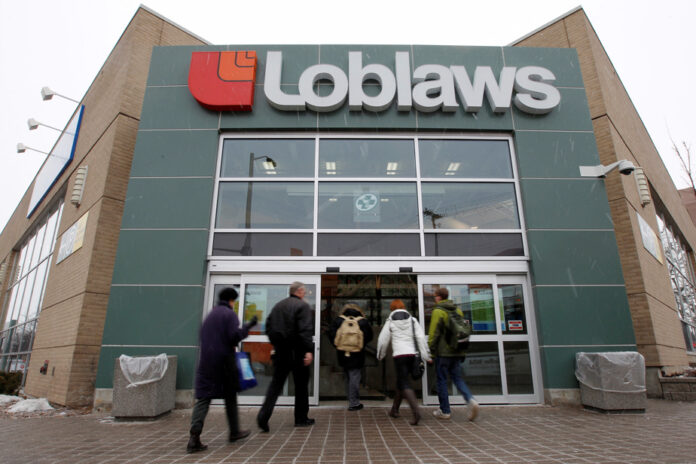Canada’s largest grocer says the cost of its products has risen by nearly $1 billion so far this year – double the historical norm – as it continues to see ‘outsized’ price increases from major multinational food brands.
Loblaw Companies said Wednesday that price increases no longer appear to be in sync with the commodity price environment and are contributing to high food inflation in Canada.
While small and medium-sized Canadian food suppliers appear to be “catching up on costs,” price increases passed on by large food companies are “more concerning,” said Loblaw Chief Financial Officer Richard Dufresne.
“We are still seeing outsized cost increases from large global consumer goods companies, exceeding what we expected at this point,” he said on a conference call with analysts.
But the head of one of Canada’s largest food industry groups says manufacturing costs continue to rise and the opportunity to make a fair margin “shouldn’t just be the preserve of retailers.”
Food, Health and Consumer Products of Canada chief executive Michael Graydon said Wednesday that labor, packaging, distribution and regulatory requirements are all contributing to inflation. costs in food manufacturing.
In addition, many of the commodities currently in use come from inventory or from supply contracts negotiated when prices were higher, and those prices continue to flow through the supply chain, he pointed out.
Loblaw executives made their comments on the sidelines of posting first-quarter earnings of $418 million, up from $437 million in the same period last year — but the company profited last year. last of a one-time gain following a favorable decision rendered by a court. Quarterly revenue totaled nearly $13 billion, up from $12.3 billion last year.
The grocer made the decision to highlight the price increases because it’s “one of the biggest drivers of cost inflation that we’re seeing,” said Loblaw Chairman and President Galen Weston.
“We did not pass all of the cost inflation on to customers, which resulted in a further decline in food gross margin this quarter. »
He noted that sales of Loblaw’s house brands, President’s Choice and No Name, grew more than twice the pace of major national brands in the quarter.
PepsiCo, the company behind products such as Tropicana orange juice and Lay’s potato chips, raised prices 16% in its latest quarter, contributing to 18% growth in profits , she announced last month.
Unilever, which makes Dove soap and Hellmann’s mayonnaise, reported a 10.7% price increase in the last quarter, while Nestlé raised prices 9.8% on products including Smarties and Perrier water.
Meanwhile, Statistics Canada reported last month that grocery store prices rose 9.7% year over year in March, following a 10.6% rise in February.
The deceleration was driven by falling fruit and vegetable prices, the federal agency said.
Economists had expected the speed of food price increases to gradually slow this spring as the rise in the cost of key inputs moderates along the supply chain.
Loblaw announced a 10% increase in its dividend on Wednesday as it reported its first quarter results. It will now pay a quarterly dividend of 44.6 cents per share, compared to 40.5 cents per share previously.
The retailer, which operates Provigo grocery stores and Pharmaprix pharmacies in Quebec, reported earnings of $1.29 per share for the quarter ended March 25, down from $1.30 per share. share in the same quarter last year.
Sales at its grocery stores open for at least a year increased 3.1%, while those at pharmacies open for at least a year increased 7.4%.
On an adjusted basis, Loblaw said it earned $1.55 per share in its most recent quarter, up from adjusted earnings of $1.36 per share a year ago.
Analysts on average had expected adjusted earnings of $1.55 per share and revenue of $13.2 billion, according to forecasts compiled by financial data firm Refinitiv.















